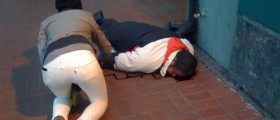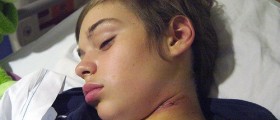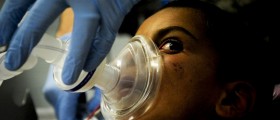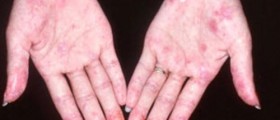
Epilepsy is a brain disorder characterized by sudden onset of seizures which occur due to abnormal brain activity and excitation of many brain neurons. Most seizures do not last longer that a few minutes. Only in case of status epilepticus, seizures last much longer and may even cause severe damage to the brain.Partial Seizures
Partial seizures are only one type of seizures. They develop as a consequence of abnormal electrical activity that affects only one part of the brain. This is the reason why the symptoms are focal i.e. affecting only one part of the body. Since different parts of the brain control different body parts it is logical that symptoms and signs of epilepsy actually depend of the affected part of the brain. Partial seizures can be further classified into simple partial seizures and complex partial seizures.
Simple partial seizures affect one arm or leg and cause muscular jerks or strange sensation felt in the affected limb. One may also experience changes in hearing, vision, smell or taste. Pins and needles sensation is common as well. However, there is no loss of consciousness. Simple partial seizures last approximately a few minutes and they are always the same i.e. patients always experience the same symptoms.
Complex partial seizures, as the very name suggests, are a bit complicated. The affected individual is not aware of his/her surrounding and simply does not know what he/she is doing. There is also partial loss of consciousness. Even though complex partial seizures may originate from any part of the brain, the focus of abnormal activity is most frequently located in the temporal lobe. This is the reason why they are also known as temporal lobe epilepsy. Patients who are suffering from complex partial seizures generally cannot explain feelings and sensations during the attack and they often feel like being in a dream.
Finally, partial seizures may sometimes progress into generalized seizures and are then referred to as secondary generalized seizures.Seizures Trigger Factors
Sometimes seizures occur without no apparent reason. However, many people actually identify potential triggers, may avoid these and prevent frequent attacks.
Possible triggers of seizures are stress/anxiety, heavy drinking, illicit drugs, lack of sleep, irregular meals, flickering lights, menstruation and some illnesses.
How to Help?
All bystanders of an epileptic attack must remain calm, be familiar which activities they need to do in order to help the affected individual. Almost all seizures stop within a few minutes. Pay attention and do not allow confused patients to wander off. Also, it s best to remove all sharp objects and other such stuff away from a person because if convulsions become severe and uncontrollable, patients may accidentally hurt themselves. If one is about to lose consciousness and fall down help him/her and prevent head injuries. Finally, stay with the person until he/she fully recovers and becomes aware of his/her surrounding.

















Your thoughts on this
Loading...